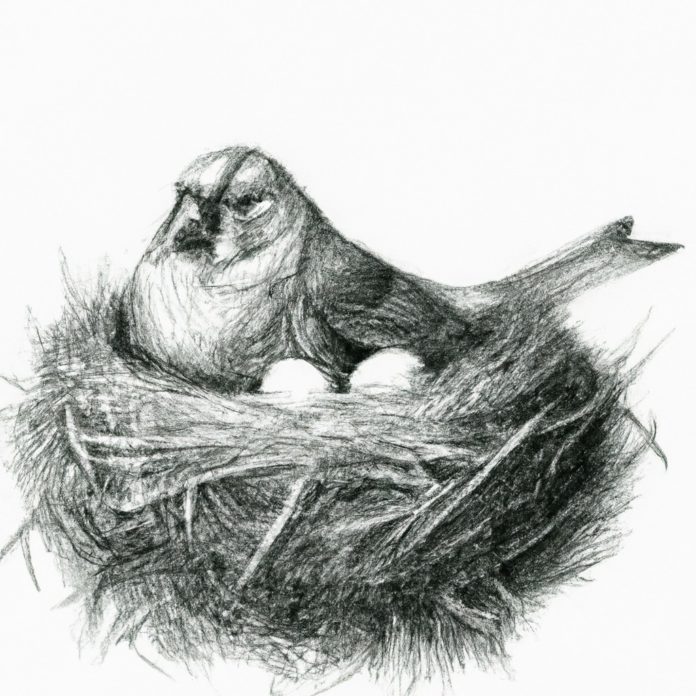Dear VetBabble: My Female Canary Keeps Laying Eggs, Will They Hatch and What Can I Do About This Behavior?
Welcome to another edition of VetBabble! Today, we’ll be discussing a question from a pet owner who’s concerned about their female canary’s constant egg-laying. The question is:
“My female canary keeps laying eggs every other day and already has four in the nest. Will they hatch and is there anything I can do?”
Egg-laying in canaries can become a concern when there is no male involved, as the eggs will not be viable. In this article, we’ll be discussing possible steps to take in addressing your bird’s behavior, and the general care behind ensuring a happy and healthy pet bird. Let’s get started!
Understanding the Egg-Laying Process and the Chances of Hatching
Female canaries, like many other pet birds, lay eggs as part of their natural reproductive cycle. If there is no male canary present to fertilize the eggs, they will not be viable and won’t hatch into chicks. This means that your female canary’s current clutch of eggs will not result in new additions to your family if no males are around.
While egg-laying is a natural process, constant egg-laying can lead to health issues for your pet. Therefore, it’s essential to address this behavior and help your bird to cease laying eggs consistently.
How to Manage Your Canary’s Egg-Laying Behavior
If your female canary continues to lay eggs despite no male being present, you can take several steps to curb this behavior and ensure her well-being. These include:
- Removing the nest: Taking away the nest can help discourage your canary from laying more eggs. Without a nesting site, she may feel less inclined to continue the egg-laying process.
- Introducing dummy eggs: Available at most pet stores, plastic eggs (also called dummy eggs) can be placed in the nest. Observing a full clutch of appropriately sized eggs may encourage your bird to stop laying real eggs.
- Limiting daylight: Long hours of daylight can prompt egg-laying hormones in birds. Reducing the amount of light your canary is exposed to by covering her cage earlier than usual or providing a shorter period of artificial light can help reduce the stimulation to lay eggs.
It’s vital to monitor your canary’s health during this time and consult a veterinarian specializing in birds if you have concerns or if the egg-laying behavior persists.
Maintaining a Healthy Environment for Your Pet Bird
Just as with any other pet, your bird’s overall health depends on maintaining a clean and stimulating environment. Providing appropriate care for your canary is essential to mitigate issues such as excessive egg-laying.
To create a nurturing and healthy environment for your bird, we recommend following these tips:
- Keep the cage clean: Regular cleaning of your bird’s cage is crucial to their health. If you’re unsure how to clean your bird’s cage, it’s worth checking out our Bird Grooming and Cleaning guide for some helpful tips!
- Offer a balanced diet: Be sure to provide a varied and nutritious diet appropriate for your canary’s needs, including attention to her calcium intake, which will help ensure that laying eggs doesn’t deplete her body of this essential mineral.
- Provide mental stimulation: Encourage natural foraging and exploration behavior in your canary by adding toys and perches to her cage, changing these up frequently to keep her engaged. Spending time with your bird and offering her attention will also help to keep her happy.
Like any pet, ensuring a high quality of care also reduces the risk of other issues, such as parasites. If you encounter issues such persistent flea problems in your other pets, for instance, you can check the following articles for more information: Why Does My Cat Still Have Fleas? and Why Does My Dog Still Have Fleas?.
Overall, providing the best care for your bird is crucial, and addressing excessive egg-laying is essential for the well-being of your female canary. Knowing when and how to intervene is essential, but always enlist the help of a specialized veterinarian when in doubt. For more information on caring for other unique pets, such as mice, take a look at our Mouse Care Guide.
We hope this article has helped you understand your canary’s behavior and highlighted ways to manage excessive egg-laying without harming her health. As always, feel free to reach out to VetBabble with any more questions you might have. Happy pet parenting!









